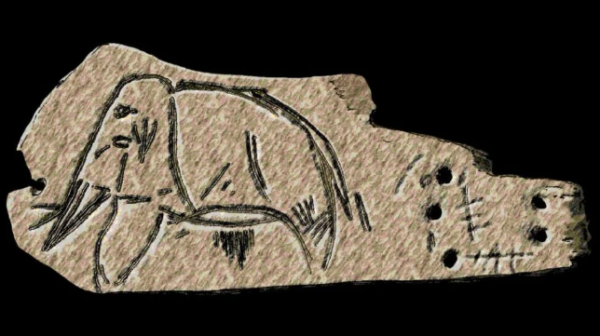 by Dario Radley
by Dario Radley
In a discovery that pushes the history of human innovation back nearly 300,000 years, archaeologists in Ukraine have excavated the oldest deliberately modified ivory artifacts. Discovered at the Lower Paleolithic site of Medzhibozh A in western Ukraine, these tiny fragments of mammoth ivory—some of them intentionally shaped—suggest a previously unknown dimension to the behavior and technological creativity of early hominins.
The findings, published in a study by Dr. Vadim Stepanchuk and Dr. Oleksandr O. Naumenko in the International Journal of Osteoarchaeology, reveal that ivory was used by hominins at least 400,000 years ago—much earlier than the previously known oldest examples, which are about 120,000 years old.
Medzhibozh A, on the Southern Bug River near the town of Medzhybizh, was discovered in 2011 and excavated intermittently through 2018. The layers at this site span much of the Pleistocene epoch, and the ivory items recovered there were from layers that could be dated to Marine Isotope Stage (MIS) 11. Using electron spin resonance (ESR) and other geological analyses, researchers were able to date these upper layers to approximately 400,000 years ago.
Twenty-four small fragments of ivory were recovered, eleven of which showed definitive signs of human modification. Included among them were instances of sophisticated techniques usually reserved for the production of stone tools, including bipolar-on-anvil knapping, trimming of the edges, and flake removal. One of the fragments was a core, and another was a pointed tool, both of which provide a strong indication of deliberate shaping.
However, the utility of ivory as a material for tools is questionable. With a Mohs hardness of only 2–4—considerably softer than flint or quartz—ivory is no match for stone. This led researchers to suggest that these objects may not have been designed exclusively for practical use.
https://archaeologymag.com/2025/04/400000-year-old-ivory-tools-found-in-ukraine/















